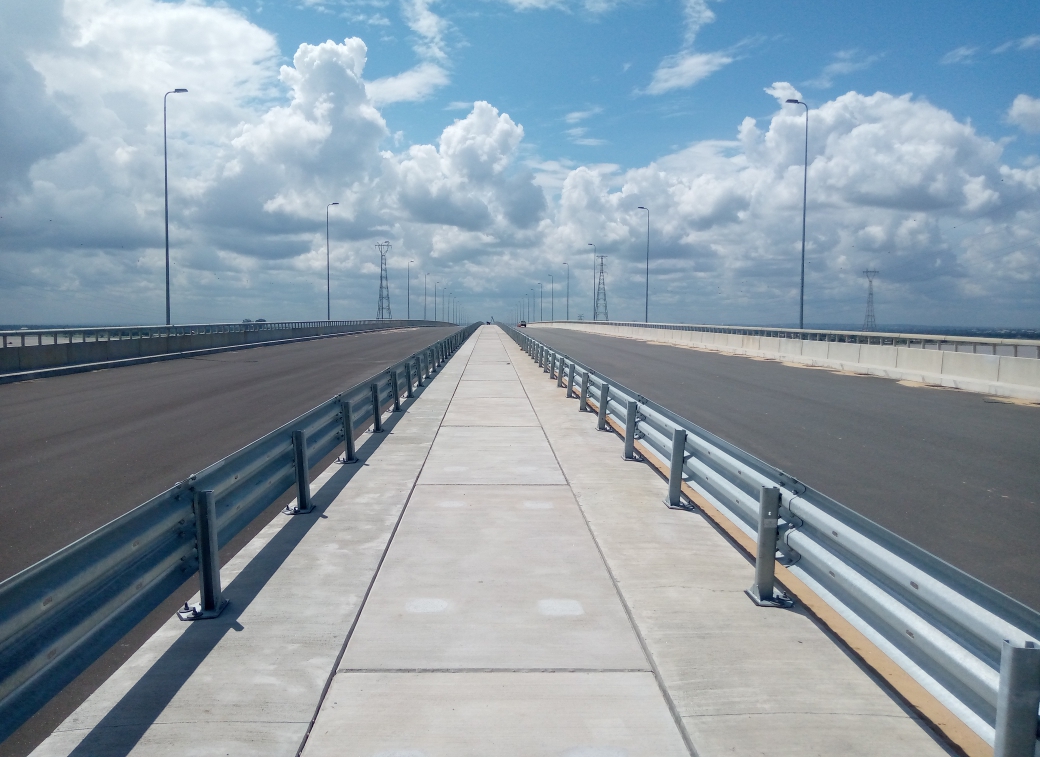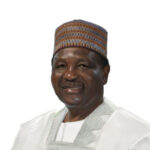The completion of the Second Niger Bridge, which closes today after being open to traffic over the past month, is a big deal for Nigeria’s infrastructural development, the economy and well, for the whole point of “One Nigeria”.
A nation’s physical infrastructure projects like roads, bridges, dams, rail lines, power plants and so on are primarily designed and constructed to boost economic development by opening further vistas for trade and other economic activities domestically or internationally. But all too often, they become social and cultural infrastructure as well. Some physical infrastructure projects, in fact, become monuments and symbols not only of the nation’s economic ambitions, but also of its cultural and political self-imagining. Just as a road or bridge is key to the movement of people, goods and services between two or more communities, it also opens the door into peoples’ hearts, and helps in no small measure in bridging cultural and political differences between peoples. The road, water and rail networks that connect European countries, for example, have helped facilitate not only the free movement of people, goods and services across Europe, but also to cement the whole political idea of a European Union as one people.
It is in this latter sense of infrastructure that Daily Trust locates the significance of the completed Second Niger Bridge. In a statement declaring the Second Niger Bridge open to the public for one month just before Christmas on December 15th last year, the Minister of Works and Housing, Mr Babatunde Fashola, SAN, said that President Muhammadu Buhari’s vision for completing the bridge was to help reduce the waste of man hours from the traffic gridlock on the First Niger Bridge, save lives, and deepen economic connectivity not just between Delta and Anambra states, but also across the entire country.
We agree with the President and commend his political will for completing what many of his predecessors had talked so much about but acted little upon. Still, we are confident that the significance of the bridge goes far beyond its economic benefits for the South East and the rest of the country. It embodies a lot of Nigerian history, and its completion by the Buhari administration at this rather turbulent moment is in fact
a reminder of the depth of commitment by the federal government of the very idea of One Nigeria, an idea presently challenged on several different fronts by those misguided and miseducated enough to think otherwise.
Kaduna Electric disconnects govt offices in Sokoto, Zamfara
Climate change: Poor insurance culture compounds farmers’ anguish amid poverty
The First Niger Bridge was commissioned and opened for traffic in December 1965. Its commissioning was about the last major public function of the late First Republic Prime Minister, Sir Abubakar Tafawa Balewa before he was assassinated this very day the following month on January 15 1966. Less than three years later the bridge was destroyed during the civil war and was thus among the first post-war reconstruction efforts of General Yakubu Gowon’s Reconstruction, Reconciliation and Rehabilitation programme. That first bridge is still standing today as a constant reminder of the price we have all paid for keeping Nigeria one, even if, as our country has grown, it has struggled to keep fit. And it was for the same reasons of national reconciliation and reconstruction that the idea of a second bridge was first muted shortly after.
It is for these same reasons that we commend President Muhammadu Buhari for realizing that most important vision of his early predecessors for advancing the course of One Nigeria, at a time when rumblings for a reversion to an unfortunate past by a young generation unfamiliar with the pains of that past could not be louder or deadlier. The Second Niger Bridge is therefore yet another handshake across The Niger and a reminder that we are one country, one people whose fortunes are not only too deeply intertwined to be severed, but simply better served together.
Still, this work is not fully done, and it behoves the Buhari government to have it fully completed before its exit date this May. As Mr Fashola has severally explained over the past five years since its commencement date in August 2018, the project is being funded by a consortium of private and public partners, principally the Nigerian Sovereign Investment Authority (NSIA) at a total cost of N406.2bn, according to NSIA’s website. The first phase of the project comprises the main bridge—1.6km long—over the River Niger, approach roads from Asaba and Onitsha ends, both totalling 10.3km, and two secondary bridges and a new cloverleaf interchange at Onitsha-Owerri Road. According to NSIA, this first phase of the project has reached 92% completion, including the main bridge which has been fully completed.
But work is yet to commence at all on the second phase of the project, comprising approach roads along Benin-Asaba and Onitsha-Enugu roads, each measuring 17.5km and are designed to connect to those neighbouring states and by implication link the bridge to the rest of the country. We urge President Buhari and his Works and Housing Minister, Babatunde Fashola, to expedite action on the project to ensure full completion before they are due to leave office in May. We also urge both to ensure timely completion of the Abuja-Kaduna-Kano and Lagos-Ibadan expressways which are also being funded by the NSIA. We remind the government that only physical infrastructure projects that are fully completed make enduring legacy. Above all, we remind the government that a people connected by roads and bridges are a people connected by hearts.

 Join Daily Trust WhatsApp Community For Quick Access To News and Happenings Around You.
Join Daily Trust WhatsApp Community For Quick Access To News and Happenings Around You.


